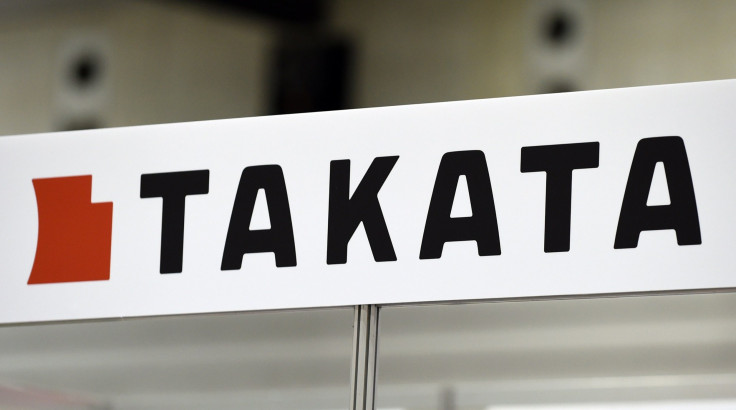Nissan And Toyota Join Honda In Dropping Takata Airbag Inflators, Other Japanese Automakers May Follow

After Honda announced Tuesday that it will stop using Takata airbag inflators in its cars, Nissan and Toyota followed suit and announced that they, too, will not use the Tokyo-based company as their airbag supplier. Automakers are rethinking their relationship with Takata following a faulty airbags scandal, which is now being investigated by U.S. authorities.
A report by the New York Times on Friday said that other Japanese automakers like Mitsubishi Motors and Fuji Heavy Industries have also expressed their desire to phase out the use of Takata’s airbag technology. On Thursday, Japanese automaker Mazda announced, according to Bloomberg, that it will stop using Takata airbag inflators in its cars. Takata will likely take a massive hit as Nissan, Toyota and Honda are the largest automakers in Japan, with sales at about 20 million in 2014, the Times reported.
“In line with the recent announcement from the United States’ National Highway Traffic Safety Administration (NHTSA), we have decided to no longer use inflators containing ammonium nitrate in airbags for future models," Dion Corbett, a Nissan spokesman, told Bloomberg on Saturday, adding: "We will continue to put our customers’ safety first and work to replace the inflators in vehicles under recall as quickly as possible."
On Monday, Nissan had said that its vehicles in Japan that were cleared of airbag defects will be inspected again after last week’s incident where a passenger was injured after her airbag deployed with too much force, Reuters reported.
Toyota President Akio Toyoda said at a briefing Friday: “The inflator using ammonium nitrate produced by Takata will not be adopted by Toyota,” adding: “What’s most important above anything else is the safety and peace of mind of customers,” according to Bloomberg.
Over 30 million cars have been recalled since 2008 due to faulty Takata airbag inflators, which allegedly deployed with excessive force. The inflators have been linked to eight deaths and 100 injuries.
On Tuesday, Takata was fined $70 million for the lapses in its airbags by U.S regulators and it was ordered to stop using a potentially dangerous chemical, which has been cited as a factor for violent airbag ruptures. The company obliged to conditions to sign the consent with the NHTSA and said that it will phase out the use and sale of the ammonium nitrate propellant by 2018.
During its announcement of the decision to stop using Takata airbags, Honda said that Takata “manipulated and misrepresented test data for certain airbag inflators.” Earlier reports had also said that steel inflators in two airbags had cracked during tests but Tataka employees ordered the lab technicians to delete the test results. Takata had then denied the allegation and had assured the regulators, along with Honda, that the airbag explosions were just a specific isolated manufacturing issue.
Takata also recorded a combined special loss of 17.2 billion yen for the April-September period on Friday, Reuters reported. The company cut down its forecast for full-year net income to 5 billion yen from 20 billion yen earlier. The company’s stocks were down 6.2 percent during Friday trading in Tokyo, leading to a fall of 39 percent over three days, according to Bloomberg.
“I really don’t see how they’re going to be able to survive as an inflator manufacturer,” Scott Upham, founder of Valient Market Research, said, according to Bloomberg, adding: “When your major clients publicly come out and say that they’re not going to use your products anymore, it makes this very difficult to sustain your business.”
© Copyright IBTimes 2025. All rights reserved.






















